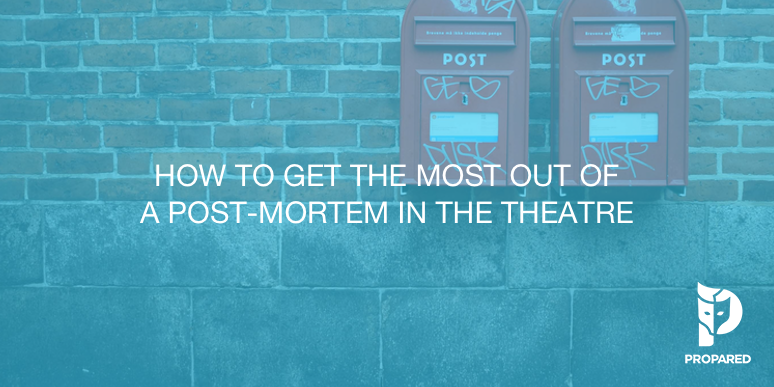
A nice thing, probably one of my favorite things about working in events is that there isn’t really a “traditional” day. There are general working days, pre-production days, event days, and post-event days. If you’re lucky, some days may be more than one! You may go into pre-production the morning of the event and load out that night. A day in the life of an event manager is exhilarating. Imagine riding a rollercoaster that’s still being built. While juggling. I could go on but you get the idea. Here’s a little peek into how my days as an event manager play out. One thing to note: I’ve been at this for nearly 20 years and I’m still tweaking my process. We’re never really done learning, are we?
What do my General Planning Days Look Like?
6:00am
Wake up early and get to the office. This is especially fun in the dead of winter when the sun hasn’t come up yet. But it’s vitally important. There’s a finite amount of time to accomplish things before the rest of the world (clients, other members of your team, suppliers, contractors) wakes up and starts needing things. I take advantage of this quiet time to answer emails and get my day in order. Some people stay up late to do this, but I’m never at my best late at night. I’m too exhausted and I’m carrying the baggage of whatever happened that day. Never a good starting place for writing emails.
So I almost always start with reading any messages that came in late. Because event work rarely fits neatly into the 9-5 schedule, it’s very common to have a lot of activity happening well into the night; end-of-night reports, issues that came up at the event, contingencies, and even referrals. Someone attending the event enjoyed the design and execution and inquired after the event planners behind it. By tackling this after a good night’s sleep, I’ve got time to think carefully about how I want to address everything, craft thoughtful responses, and send them out.
9:00aM-12:00PM
Q&A time. I devote the bulk of the morning to finding answers to my team’s questions. They may be about past, present, or future work. I like to have an early morning meeting with my assistants to go over priorities and brainstorm solutions to potential issues. I always try to identify some basic information in each scenario: who is doing what, where, and when, and what resources do we need to help accomplish these goals. Here’s a few examples of what I typically tackle.
- Updates on recently completed jobs
- Updates on current slate of projects
- Updates on new client outreach
- Updates on future booked events
As with everything in the events world, things change a lot during the day. Certainly well after the morning has come and gone. We use Slack to stay up to speed on the things we identified earlier.
12:00pm
Eat lunch. I know you hear it a lot and it can be hard to schedule. Take at least a few minutes for yourself to not think about work and get some nourishment. It will energize you like nothing else for the rest of a long day. I like to get out of the office even if I brought my lunch. Take it for a walk, some place that helps clear your head. It’s very easy to sit at your desk and eat while working. For me, this doesn’t count as a lunch break. The word “break” is just as important as “lunch.”
1:00PM-5:00PM
At least 2 meetings. If I’m being honest, it’s my least efficient part of the day. So I try to put the focus on things outside of my own to do list. I check in with clients or team members. I make most of the adjustments to event schedules during this period of time, taking into account changes and progress made during the day. This is accompanied by a new set of questions that need answers and a new round of topics to consider (the next morning is already starting to take shape!). I also try to tackle the more mundane aspects of my job; cleaning up my work space (hard drive or cloud storage included), for example.
5:00pM-7:00PM
I go home. Maintaining a balance between my personal life and professional life is critical to keeping both healthy. If I don’t have an event that night, I take advantage of it. Letting work take a back seat was extremely difficult at first but got easier as time went on. My assistants and supervisors know that if an emergency pops up, they can call or text. If it can wait until later, they notify me in Slack or via email and know that I’ll pick it up and respond first thing in the morning.
7:00PM-8:00PM
Send out the revised schedule. For any complex event, things change each day and those changes need to be communicated. I typically send out an updated schedule at the end of every day. That way, I’m ensuring that my team always has access to the most up-to-date information. And I like to do this from home. Not sure why. Something about the change of scene maybe, just gives me one last boost of productivity.
8:00PM-End of the night
Remember: work-life balance. The rest of the evening is mine. Until tomorrow!
What About the Days Leading Up to an event?
For me, only small things in my daily schedule actually change. And most of them occur on the days leading up to an event. I’m spending time on final checks and coordinating meetings with my department heads. Really all I’m doing is changing out the content of my morning and afternoon blocks, not the blocks themselves. By this point, my general Q&A, my contingency planning, etc. should be done. If we’re still planning on the day of the event, I’ve missed my mark. Sometimes, on these “lead up” days, I’ll find myself working longer into the evening. Especially if my team is dealing with a particularly complex load in or I have a demanding client. But I try really hard to let this be the exception, not the norm. As soon as I start breaking my working day rules, I start to become a whole lot less efficient. My entire process begins to crumble. Resist that urge.
What about event day itself?
An event day begins like any other. However, I prioritize the needs of my team that is executing on the ground, as well as the needs of my client. If anyone needs my help, I’ll put aside my other work and jump in. My goal is to help the team implement their own schedules, not micromanage. I use my morning to ensure responsibilities have been delegated to the people who specialize in particular areas. I then keep my meeting times open for the client should he or she need. It’s important to me that I still carry on the work of the larger business even when an event is happening. I trust my supervisors to do as good a job as I could do. If I’m just sitting around twiddling my thumbs, waiting for someone to call, I’m wasting my time and my company’s time.
And Post Event Days?
I sound like a broken record but again, my schedule stays fairly similar. I just tackle different tasks. Post-show wrap ups are key for my team and we do them as soon as an event closes. Time is the enemy of documentation. The longer we wait to debrief, the harder it is to remember what happened.
You probably noticed a larger trend in my daily planning. And it isn’t an accident. Event work is changing constantly. So I’ve made a concerted effort over the years to counter that with a daily schedule that is repeatable. And UNCHANGING. As best as I can. The more I allow my work hours to drastically swing, the harder it is to both manage a slate of events and grow a business. I find myself forgetting details and generally losing focus. By sticking to a strong framework for my day, I can stay on top of my checklists and deliver the best possible results for my clients.
Event managers, how do you plan you working days? Do you do things differently when you have an active event? Share your process with us in the comments below.



